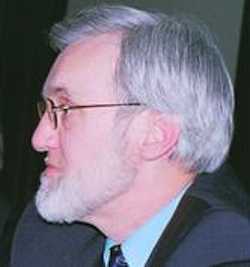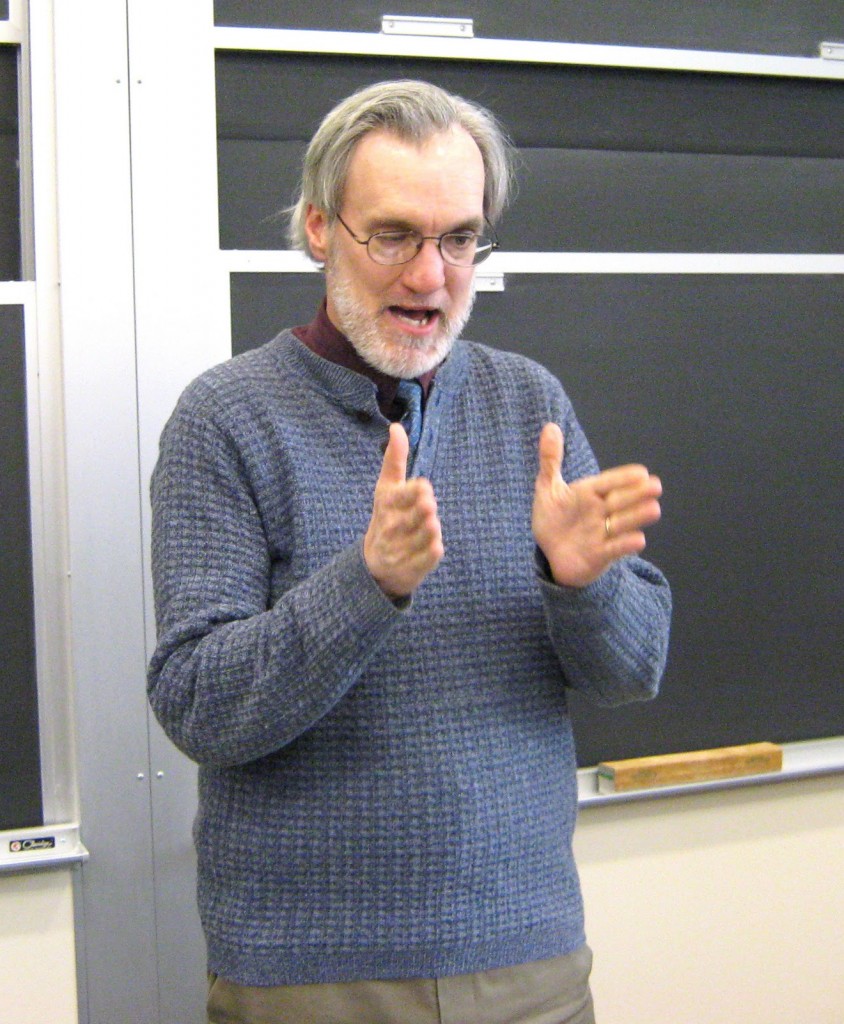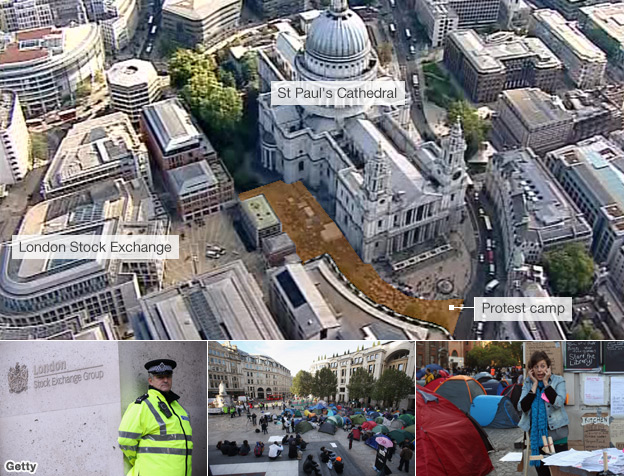Show Your Support – Share This Pic
Many thanks to our good friends at Clerical Whispers.

The Gay Catholic Priests' Blog
The author of a column in the official publication of the Boston archdiocese, who also served as an advisor to the U. S. Catholic bishops, resigned on Friday.
Daniel Avila wrote an opinion piece published in The Pilot, a weekly newspaper. Published on Oct. 28, just in time for Halloween, the article suggested that homosexuality is the work of the devil. 
Gay rights groups and many among the Catholic laity were upset by the author’s views, which they considered to be bad science, theology, and spirituality.
Indeed Avila’s piece, “Some fundamental questions on same-sex attraction,” caused a disturbance in Greater Boston and beyond, especially in the LGBT and allies’ blogosphere.
Accordingly, Avila resigned on Nov. 4 from his position as an advisor to the U.S. Conference of Catholic Bishops’ (USCCB) Subcommittee for the Promotion and Defense of Marriage. His resignation was accepted, to be effective immediately, according to the Associated Press.
Locally, for more than a decade, Avila advised the Massachusetts Catholic Conference (MCC).
The USCCB and the MCC are official lobbying arms of the nation’s bishops and the state’s bishops, respectively.
Reactions of gratitude and relief were swift from advocacy organizations.
“Mr. Avila’s dangerous view that Satan causes people to become gay has no place in any credible news publication, whether it be mainstream or religious press,” said Sharon Groves, director of The Human Rights Campaign’s Religion and Faith Program.
“He ignored not only the widely accepted science that [homosexuality] is normal, but also the modern thinking of many religions. I am pleased the Conference of Catholic Bishops accepted his resignation and I ask them to speak up and denounce his dangerous rhetoric.”
Two days before Avila left his position, the Pilot, which is the nation’s oldest Roman Catholic publication, retracted the column. At the same time, Avila apologized for any pain his piece caused and said his views are not those of the bishops.
“Statements made in my column, ‘Some fundamental questions on same-sex attraction’ . . . do not represent the position of the [USCCB] and the column was not authorized for publication as is required policy for staff of the [USCCB]. The teaching of Sacred Scripture and of the Catechism of the Catholic Church make it clear that all persons are created in the image and likeness of God and have inviolable dignity,” said Avila in a written statement.
“ Likewise, the Church proclaims the sanctity of marriage as the permanent, faithful, fruitful union of one man and one woman. The Church opposes, as I do too, all unjust discrimination and the violence against persons that unjust discrimination inspires. I deeply apologize for the hurt and confusion that this column has caused,” Avila said.
Terrence C. Donilon, communication’s secretary for the Boston archdiocese and Cardinal Sean O’Malley, said via e-mail correspondence, “The Avila piece was pulled because Dan retracted it and apologized and because it simply should not have been printed/published in The Pilot.”
“It is not the position of the archdiocese or the church and is simply wrong,” Donilon added.
“Daniel Avila’s column was hurtful and deeply offensive so we are grateful he quickly resigned,” said Wayne Besen, executive director for Truth Wins Out. “Demonizing never creates a healthy dialogue and Avila represented a major obstacle to the church’s claim to respect all people.”
“The [USCCB was] correct to accept Avila’s resignation,” said John Becker, director of communications and development for advocacy organization based in Burlington, Vt. “There is no place for such extremism and Avila’s poisonous remarks served to further alienate LGBT Americans from the Catholic Church.”
Marianne Duddy-Burke of Medford, Mass., said she, too, was pleased with bishops’ decision but called for further action.
“Avila’s resignation is a good first step for the bishops,” said Duddy-Burke, executive director of Dignity USA, the nation’s oldest LGBT Catholic advocacy organization.
“But they need to demonstrate they understand the ramifications of the violent language against the gay Catholic community and our families,” Duddy-Burke said over the telephone.
“Dignity USA is calling for a policy advisory committee consisting of LGBT Catholics and family members to be appointed by the bishops and to be consulted by them on decisions that effect to our community.”
The Pilot’s Oct. 28 commentary is not the first time that editor Antonio Enrique published an apology and now a retraction.
“Cardinal O’Malley, as publisher of The Pilot, should strongly consider requesting that Mr. Enrique submit his resignation,” said Charles Martel, a local social worker in private practice and co-founder of Catholics for Marriage Equality. “Ultimately, this will be the only way that the cardinal shows he is serious about the meaning of accountability in the Archdiocese.”
Complete Article HERE!
The oldest Roman Catholic newspaper in the United States has retracted an opinion column suggesting the devil may be responsible for gay attraction.
The column, which appeared Friday in the Archdiocese of Boston’s official newspaper, The Pilot, was titled “Some fundamental questions on same-sex attraction.” It was written by Daniel Avila, an associate director for policy and research for the U.S. Conference of Catholic Bishops.
In the column, Avila says “the scientific evidence of how same-sex attraction most likely may be created provides a credible basis for a spiritual explanation that indicts the devil.”
It also says “disruptive imbalances in nature that thwart encoded processes point to supernatural actors who, unlike God, do not have the good of persons at heart.” It says that when “natural causes disturb otherwise typical biological development, leading to the personally unchosen beginnings of same-sex attraction, the ultimate responsibility, on a theological level, is and should be imputed to the evil one, not God.”
The 182-year-old newspaper withdrew the column from its website on Wednesday, saying it had failed to recognize the “theological error” before publication. It posted an apology from Avila saying the column didn’t represent the position of the Conference of Catholic Bishops, whose stated purpose is to “promote the greater good which the Church offers humankind,” and wasn’t authorized for publication.
Avila said he deeply apologized for the “hurt and confusion” the column caused.
Archdiocesan officials said Avila’s apology would appear in the issue of The Pilot to be published this week, The Boston Globe reported.
The Boston archdiocese, the bishops’ group and Avila were involved in communications leading to the decision to retract the column, said archdiocese spokesman Terrence Donilon, who called Avila “passionate about his faith and passionate about his church.”
“This one,” Donilon said, “clearly just got away from him.”
Several gay rights organizations, including DignityUSA, an association of gay Catholics, and MassEquality, a Massachusetts group organized to support same-sex marriage, didn’t immediately return telephone or email messages seeking comment Wednesday night.
Complete Article HERE!
Paul Ryan accuses President Obama of engaging in “sowing social unrest and class resentment.” The House Budget Committee chairman says the president is “preying on the emotions of fear, envy and resentment.”
Paul Ryan accuses Elizabeth Warren of engaging in class warfare. The House Budget Committee chairman the Massachusetts U.S. Senate candidate is guilty of engaging in the “fatal conceit of liberalism.”
But what about the Catholic Church, which has taken a far more radical position on economic issues than Obama or Warren? What does the House Budget Committee chairman, a self-described “good Catholic,” do then?
If you’re Paul Ryan, you don’t decry the church for engaging in class warfare. Instead, you spin an interpretation of the church’s latest pronouncements that bears scant resemblance to what’s been written — but that just happens to favor your political interests.
Ryan’s certainly not the only Catholic politician in Washington to break with the church.
For years, Catholic Democrats from House Minority Leader Nancy Pelosi to Massachusetts Senator John Kerry to former House Appropriations Committee David Obey have taken their hits for adopting positions that are at odds with the church’s teachings with regard to reproductive rights and same-sex marriage.
But many of the same politicians who align with the church on social issues are at odds with the social-justice commitment it brings to economic debates.
Ryan’s rigidly right-wing approach to issues of taxation and spending, as well as his deep loyalty to Wall Street (he led the fight to get conservatives to back the 2008 bank bailout), has frequently put him at odds with the church’s social-justice teaching.
But never has the distinction been more clear than in recent days, as Ryan’s statements have reemphasized his status as the leading congressional spokesman for policy positions that are dramatically at odds with those expressed in a major new statement by the Vatican’s Pontifical Council for Justice and Peace?
That puts the congressman in a difficult spot.
Ryan has always identified as a Catholic politician, and he has frequently suggested that he is guided by the teachings of the church, going so far as to write in a July, 2011, column for a Catholic publication that: “Catholic social teaching is indispensable for officeholders.”
So what, Ryan was asked after the release of the Pontifical Council’s statement, did the House Budget Committee chairman think of proposals that the Rev. Thomas Reese of Georgetown University’s Woodstock Theological Center suggests are “closer to the views of Occupy Wall Street than anyone in the U.S. Congress”
Time magazine observes that: “Those politicians who think the Dodd-Frank law went too far in attempting to reform Wall Street will likely need smelling salts after taking a look at a proposal for reforming the global financial system that was released by the Vatican… Calling into question the entire foundation of neo-liberal economics and proposing one world financial order? You never know what those radicals over at the Pontifical Council for Justice and Peace will come up with next.”
So what was Paul Ryan’s take?
What did the chairman of the House Banking Committee think of the Pontifical Council’s highlighting of Pope John Paul II’s criticism of the “idolatry of the market”? What of the council’s call for “the reform of the international monetary system and, in particular, the commitment to create some form of global monetary management” that will end abuses and inequity and restore “the primacy of the spiritual and of ethics needs to be restored and, with them, the primacy of politics – which is responsible for the common good – over the economy and finance”?
Ryan’s initial response to a pointed question about whether the church, with urging of “the global community to steer its institutions towards achieving the common good,” might be engaging in the “class warfare” he so frequently decries, was to try and laugh the contradictions off.
“Um, I actually do read these,” Ryan joked, with regard to Pontifical pronouncements. “I’m a good Catholic, you know… get in trouble if I don’t.”
Pressed to actually answer the question, the usually direct and unequivocal Ryan suddenly embraced moral relativism.
“You could interpret these in different ways,” he said of the statements from the church’s hierarchy. “I think you could derive different lessons from it,” he added.
Amusingly, the congressman then took a shot at moral relativism, suggesting that when the Pope expresses concern regarding the global financial system he is “talking about the extreme edge of individualism predicated upon moral relativism that produces bad results in society for people and families, and I think that’s the kind of thing he is talking about.”
That’s an interesting statement coming from a congressman who frequently mentions his reverence for Ayn Rand, the novelist who set herself up as a high priestess of individualism.
It’s also wrong.
The statements from the Pope and the Pontifical Council have been focused and clear in their criticism of the greed and abuse that characterizes the current financial system, of their concerns about the economic inequity its has spawned, and especially about the damage done to the poor by the “idolatry of the market.”
The Pontifical Council is calling for dramatically more oversight and regulation of financial markets, and for the establishment of new public authorities “with universal jurisdiction” to provide “supervision and coordination” for “the economy and finance.”
“These latter (economy and finance) need to be brought back within the boundaries of their real vocation and function, including their social function, in consideration of their obvious responsibilities to society, in order to nourish markets and financial institutions which are really at the service of the person, which are capable of responding to the needs of the common good and universal brotherhood, and which transcend all forms of economist stagnation and performative mercantilism,” the council continues. “On the basis of this sort of ethical approach, it seems advisable to reflect, for example, on… taxation measures on financial transactions through fair but modulated rates with charges proportionate to the complexity of the operations, especially those made on the ‘secondary’ market. Such taxation would be very useful in promoting global development and sustainability according to the principles of social justice and solidarity. It could also contribute to the creation of a world reserve fund to support the economies of the countries hit by crisis as well as the recovery of their monetary and financial system…”
That’s a reference to a financial speculation tax, something that Ryan — a major recipient of campaign contributions from traders, hedge-fund managers and other Wall Street insiders — has historically opposed.
The Pontifical Council says that such a tax should be considered “in order to nourish markets and financial institutions which are really at the service of the person, which are capable of responding to the needs of the common good and universal brotherhood, and which transcend all forms of economist stagnation and performative mercantilism.”
There is no moral relativism in that statement, no list of options. Rather, there is a call from the Catholic Church for the development of an economy and financial systems “capable of responding to the needs of the common good and universal brotherhood.”
I happen to agree with the church on this one. My sense is that my friend Paul Ryan does not.
America is not a theocracy. Ryan certainly has a right to deviate from church doctrine as he chooses. But, hopefully, he will recognize that he is, like those members of Congress who support reproductive rights or same-sex marriage, distancing himself from the position of the church.
He is free to do so, of course. But those of us who understand that budgets are moral documents — which outline the values and priorities of a society — are equally free to wonder whether Paul Ryan, as chairman of the House Budget Committee, is perhaps engaging too ardently in the “idolatry of the market.”
Complete Article HERE!
COMMENTARY
Flipping through my normal news sources, I came across an ‘in other news’ story about the Occupy London (dubbed by the BBC as ‘anti-capitalist protest’). Seems that said protests are large enough that they have accidentally done what the Nazis needed the Blitz to do, they have shuttered St. Paul’s Cathedral.
Citing health and safety concerns, the Right Reverend Graeme Knowles, dean of the cathedral, announced that they will be closing St. Paul’s until further notice. As can be seen by the image above, the protest camp is sandwiched between the historic cathedral and the Exchange, filling Paternoster Square.
What struck me about this story most is that I see it as a sad tale of missed opportunity. Here is a large group of people who are following their conscience and speaking out against economic/social injustice and the Church, rather than providing assistance and showing that they are sensitive to the needs of their neighbour, decide to turn out the lights and lock the doors.
Is that the message that they wish to send?
Is that the message we wish to be sent?
Is that the message that Christ has charged them to preach?
Where is God in this?
Complete Article HERE!